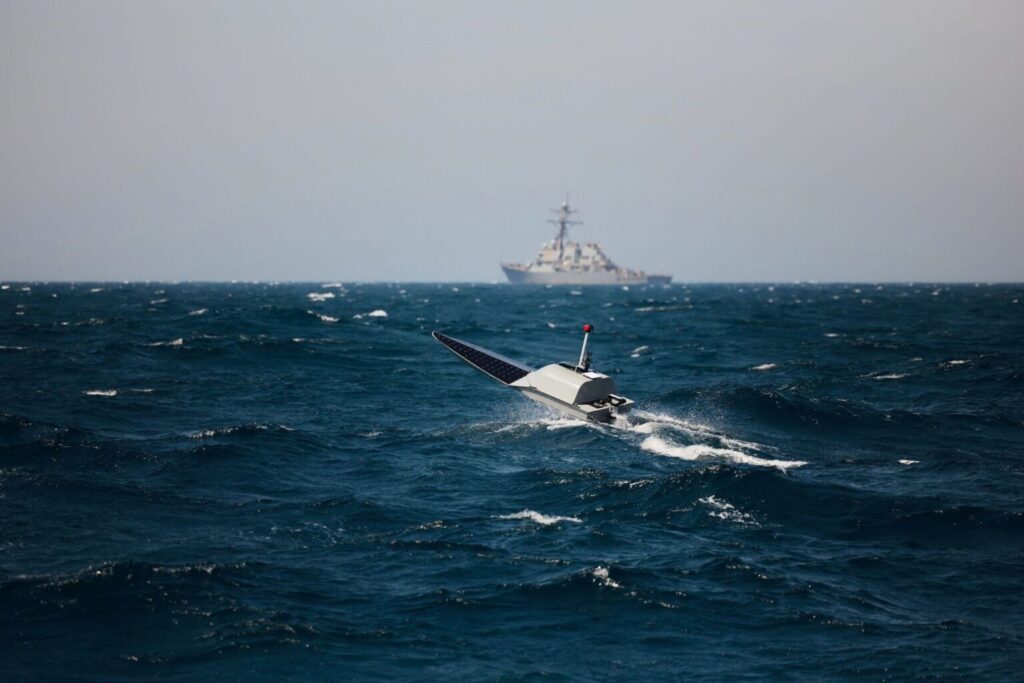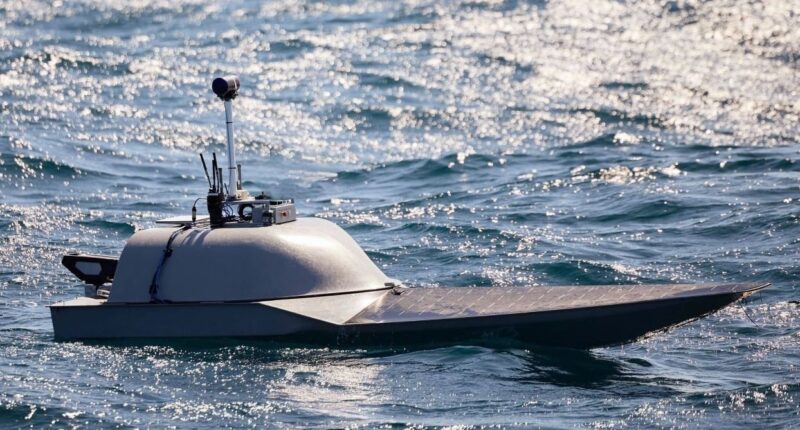In a bold move poised to reshape the landscape of naval operations, HavocAI, a rising star in maritime autonomy, and Lockheed Martin Ventures, the investment arm of aerospace and defence giant Lockheed Martin Corporation, have partnered to advance the development of Medium Unmanned Surface Vehicles (mUSVs).
This collaboration combines HavocAI’s innovative autonomy technology with Lockheed Martin’s extensive experience in defence systems and weapons integration, aiming to create a new generation of autonomous boats tailored to the demands of modern maritime warfare.
Paul Lwin, HavocAI’s Founder and CEO, captured the essence of this effort, saying, “The future of maritime warfare is autonomous, and the mUSV is at the forefront of this revolution. By collaborating with Lockheed Martin, we can integrate advanced weapons systems and deliver complete solutions that meet the evolving needs of our warfighters.” This partnership arrives at a pivotal moment for the U.S. Department of Defense, which has increasingly turned its attention to autonomous maritime platforms as a cornerstone of maintaining naval dominance.
Facing growing threats in contested waters, the Pentagon views these unmanned systems as vital tools to extend operational reach, reduce risks to human crews, and adapt to the complexities of 21st-century conflicts. Recent legislation has fueled this shift, channeling unprecedented funding into the production of medium unmanned surface vehicles, unmanned undersea vehicles, and the robotic systems that power them. For HavocAI and Lockheed Martin, this federal commitment opens a clear path to scale their efforts and tap into a defense market hungry for cutting-edge solutions.

Chris Moran, Vice President and General Manager of Lockheed Martin Ventures, emphasized the stakes, noting, “Maintaining superiority in maritime defense is fundamental to ensuring deterrence in contested waters. Autonomous capabilities make investment now more important than ever, to help the United States and its allies remain on the cutting-edge of defense technology at sea.” HavocAI has already carved out a strong position in this field, despite being founded just over a year ago.
The company has delivered more than 50 of its 14-foot autonomous boats, with the Department of Defense acquiring over two dozen for active use. These small vessels have proven their worth in real-world scenarios, supporting the U.S. Navy, Army, and Defense Innovation Unit with operational deployments that showcase their reliability and versatility. Building on this success, HavocAI recently completed sea trials for a larger 42-foot vessel, a milestone that signals its ability to scale up its technology. Looking ahead, the company has set an ambitious target to unveil a 100-foot mUSV by the end of 2025, a step that would further expand the scope and impact of its autonomous platforms.
What sets HavocAI apart is not just the size of its boats but the sophistication of its autonomy systems. In a striking demonstration of its capabilities, a single operator recently managed 25 autonomous vessels spread across Europe, Rhode Island, and San Diego, all from a single maritime operations center. This display of collaborative autonomy reveals the potential for these systems to function as a coordinated fleet, executing complex missions over vast distances with minimal human oversight.
When paired with Lockheed Martin’s expertise in integrating advanced weaponry, these vessels could evolve from surveillance and support platforms into fully capable combatants, offering naval forces a flexible and potent tool for future engagements. Lockheed Martin Ventures brings its own strengths to the table, serving as more than just a financial backer. As the venture capital arm of Lockheed Martin Corporation, it connects HavocAI to a sprawling network of defense industry resources, including customers, suppliers, and technical know-how.
This access is invaluable for a young company like HavocAI, enabling it to refine its technology and align it with the specific needs of military clients. Moran described the promise of this synergy, saying, “The mUSV is a game-changer for maritime defense, offering enhanced range, payload capacity, and mission versatility. By combining HavocAI’s innovative autonomy stack with our ability to integrate the best of American technology and deliver at scale, we can give warfighters a decisive edge in future conflicts.” The collaboration reflects a broader trend in defense innovation, where traditional giants like Lockheed Martin are partnering with agile startups to accelerate the pace of technological breakthroughs.
For HavocAI, the backing of Lockheed Martin Ventures validates its rapid progress and positions it to compete at the highest levels of the industry. For Lockheed Martin, the partnership offers a chance to stay ahead in a domain where autonomy is quickly becoming a defining factor. Together, they aim to produce mUSVs that can operate independently or alongside manned ships, handling everything from reconnaissance to direct combat, all while boosting efficiency and cutting costs. As the U.S. military pours resources into unmanned maritime systems, the stakes for this partnership are high. The boats they develop could one day patrol contested waters, gather critical intelligence, or strike targets with precision, all without putting sailors in harm’s way.
With HavocAI’s plans for a 100-foot vessel on the horizon and Lockheed Martin’s proven track record of delivering defense solutions, this collaboration is poised to play a defining role in the next chapter of naval warfare. What began as a meeting of minds between a startup and a titan could soon yield a fleet of autonomous warriors, ready to defend the seas in ways once thought impossible.

